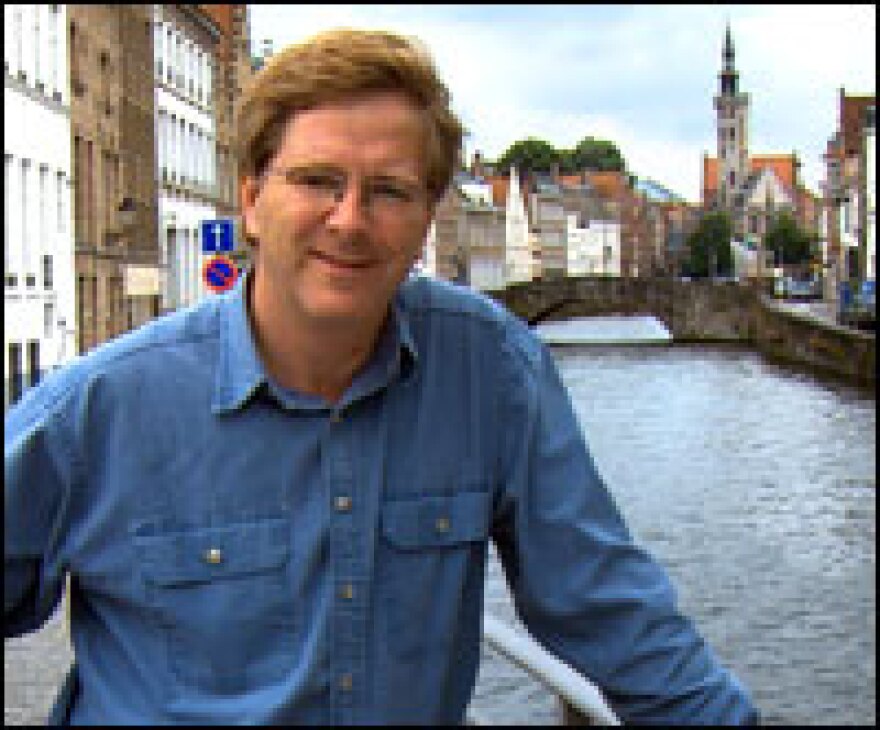
I'm not going to tell you that travel to Europe is cheap. It's not. But 12 million Americans — the vast majority of them normal working people — had a blast in Europe in 2007. So don't mope. Just get smart and stretch that wimpy little dollar. Here are ways to keep your travel dreams affordable in 2008:
Stay at a Bed and Breakfast or Hostel. A B&B offers double the warmth and cultural intimacy for half the price of a hotel. You'll find them in most countries. Europe's 2,000 hostels have countless cheap dorm beds for half the price of beds in low-end hotels. And it's not limited to youths. Anyone can hostel.
Stay at a Simple, Chain Hotel. Throughout Europe, budget-chain hotels rent efficient, if forgettable, rooms for prices nearly as inexpensive as B&Bs. These cookie-cutter rooms — which cost the same for singles, couples or even a family of four — offer the greatest savings for traveling families. Save by choosing simpler hotels. A three-star place is a bad value for a budget traveler who's satisfied with a one-star place. And some one-star hotels still offer rooms without a private bath (it's down the hall), saving you another 20 percent.
Pack the Room. Funky European hotels have rooms of all sizes, and hoteliers are often happy to pack in extra beds. The more people you put in a hotel room, the cheaper it gets per person.
Skip the Hotel Breakfast. Hotel breakfasts, while convenient, are rarely a good value. If your breakfast is not included, save money and gain character by joining the local crowd at the corner café.
Don't Eat at Touristy Restaurants. Avoid touristy restaurants with "We speak English" signs and multilingual menus. Eateries that are filled with locals aren't always cheaper, but they serve better food at a better value.
Picnics Save You Money. $20 buys a hearty picnic lunch for two anywhere in Europe. Stock your hotel room with drinks and munchies upon arrival. You can pass train rides enjoyably over a picnic meal.
Drink at the Bar, Not at the Table. Throughout southern Europe, drinks are cheaper at the bar rather than at a table. Those just tossing down a quick drink can save 40 percent by doing so at the bar.
Find Grocery Stores. 7-Eleven-style convenience stores are the rage in northern Europe ... but bigger grocery stores will save you 30 percent on snacks, drinks, picnic fare and take-away food.
Find Cheap Eats. Some of the best cheap eateries are in or near open-air markets. They cater to market workers and savvy local shoppers.
Dining on a Dime. To save money in restaurants, couples can order two side salads and split an entrée. To save more, request tap water instead of mineral water, drink the house wine and share a dessert.
Don't Over-Tip. Only Americans tip 20 percent in Europe — even when it's already included or not expected. When in doubt, ask locals for advice.
Fly "Open Jaw." Flying into one city and out of another can avoid a needless, costly and time-consuming return to your starting point.
Do You Really Need the Rental? Cars are worthless and expensive headaches in big cities. Pick up your rental car after the first big city you visit, and drop it off before the final big city of your trip. (Paying $35 a day to park a $50-a-day car while touring a city is a pricey mistake.)
Bus, Don't Train. Buses, while generally slower, are about half the cost of trains. Buses are especially economical in Britain, home of Europe's most expensive train system.
Use Public Transit. Use public transit for airport transfers. Every major airport has efficient money-saving alternatives to taxis.
Shop in Cheap Cities. Do most of your shopping in the cheaper countries where gifts are more interesting and your dollar stretches the furthest. The difference is huge: For the cost of a pewter Viking ship in Oslo ($200), you can buy an actual boat in Turkey.
Shop at Stores, Not Stands. Anywhere in Europe, big department stores sell folk art, souvenirs and postcards for 20 percent less than shops and stands on the streets and at the sights. Department stores also come with inexpensive cafeterias and free bathrooms.
Checks or Cash? Use ATMs rather than travelers checks. While ATMs give the best possible rates, they do come with transaction fees. Minimize these by making fewer and larger withdrawals.
Don't whine about the weak dollar — enjoy spending it smartly. Those who travel wisely save more money, make more friends and create a more memorable — a truly richer — experience.
Adapted with permission from Rick Steve's 2008 Best Destinations Newsletter.
Copyright 2023 NPR. To see more, visit https://www.npr.org. 9(MDM3NjYwMjA5MDE1MjA1MzQ1NDk1N2ZmZQ004))

